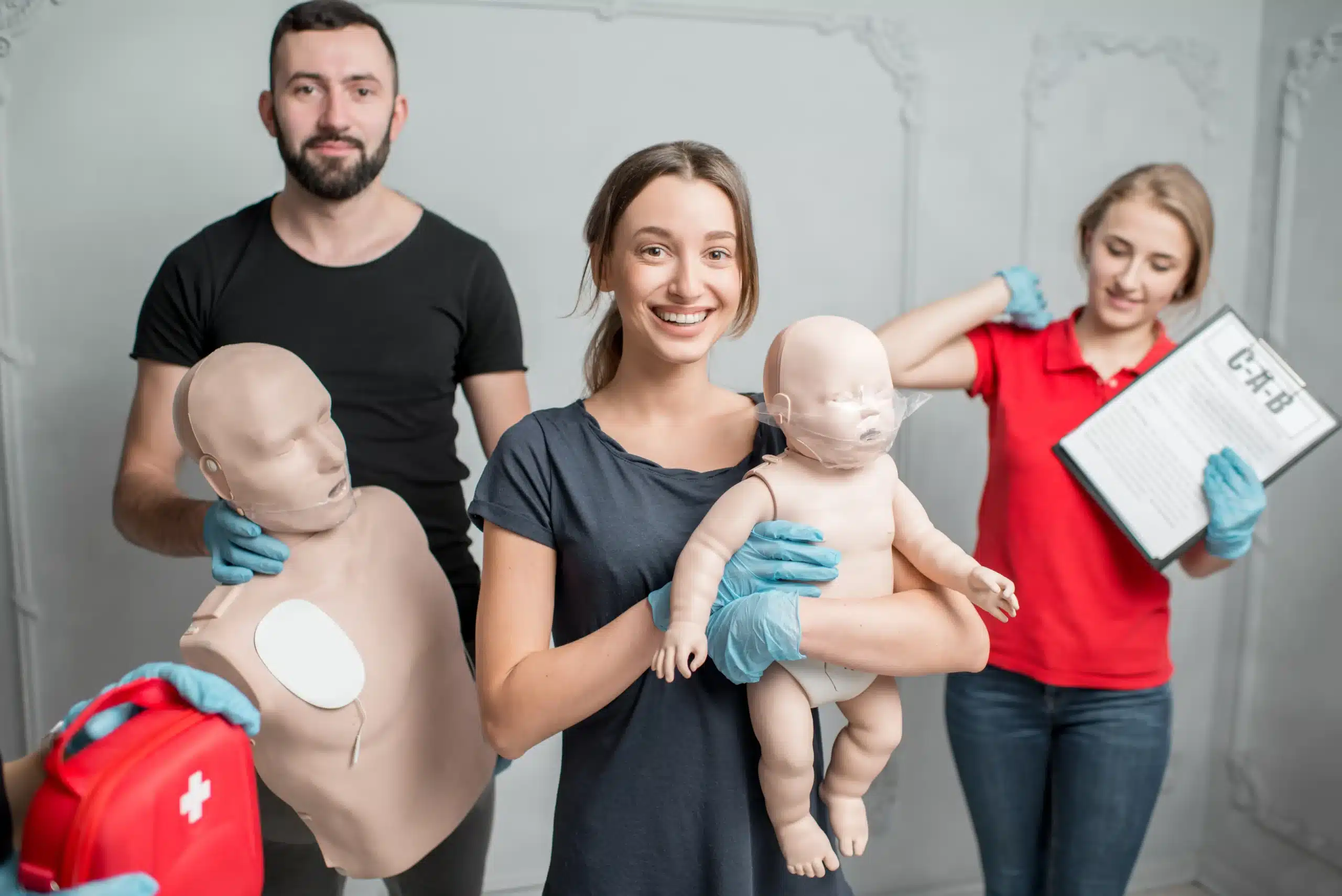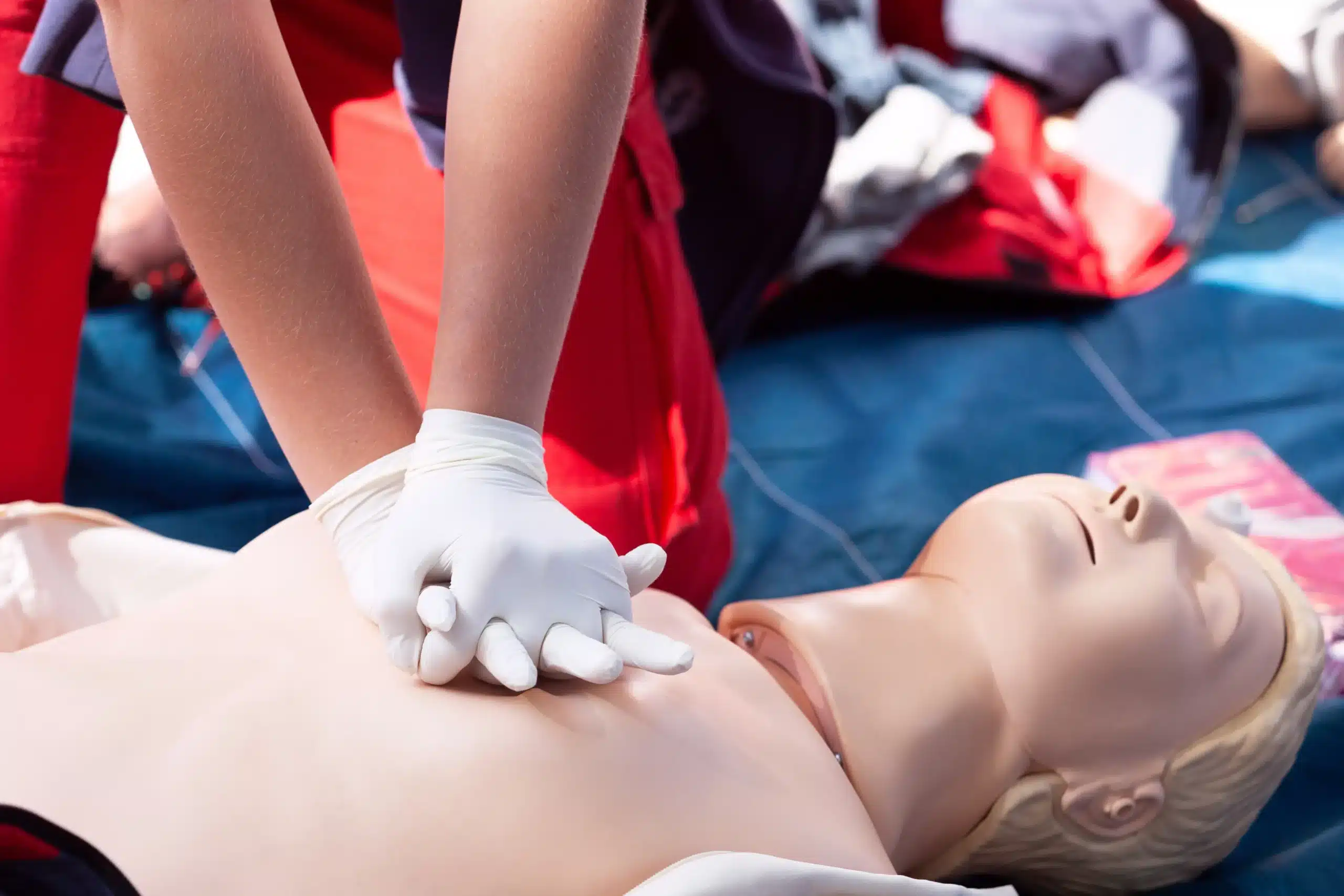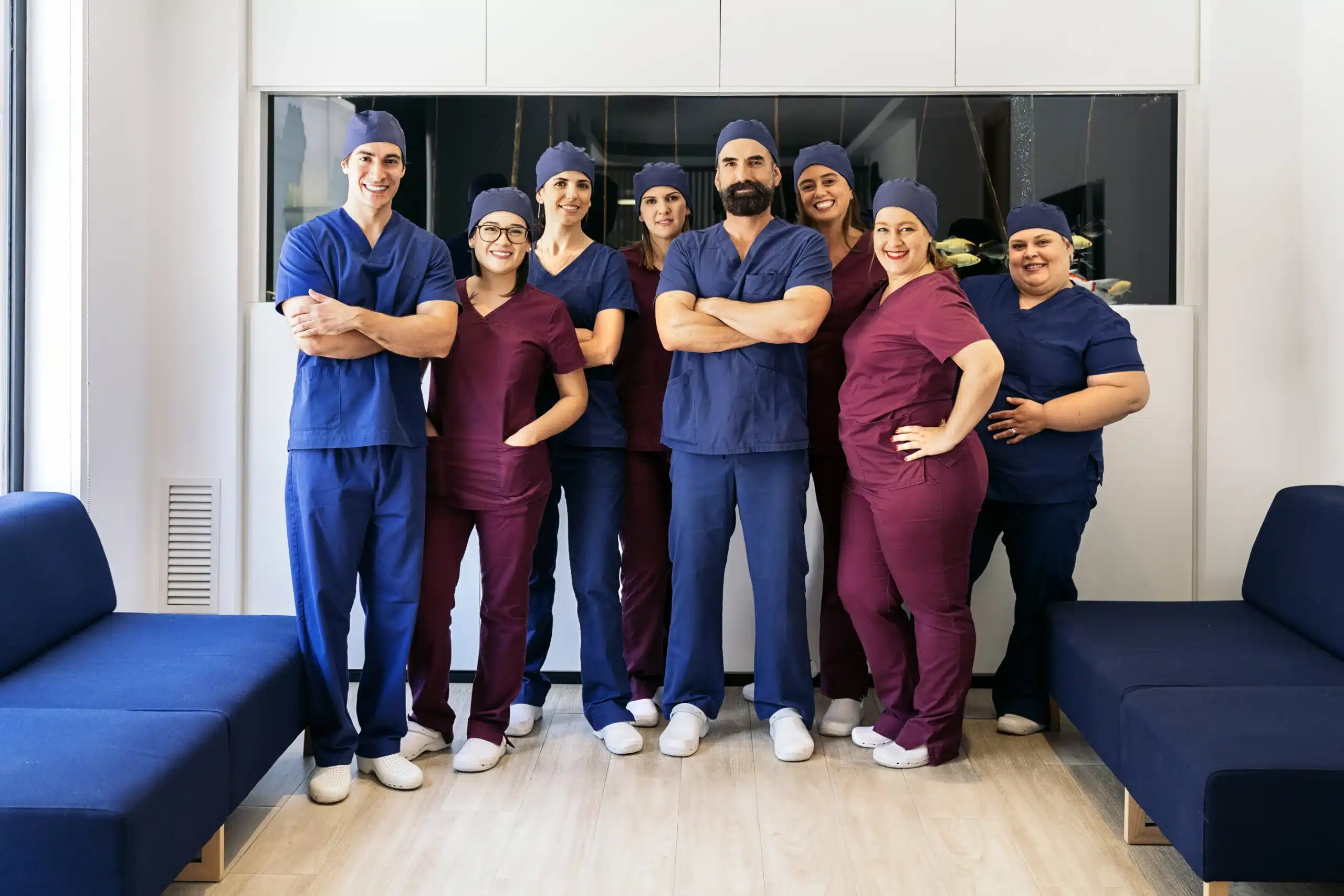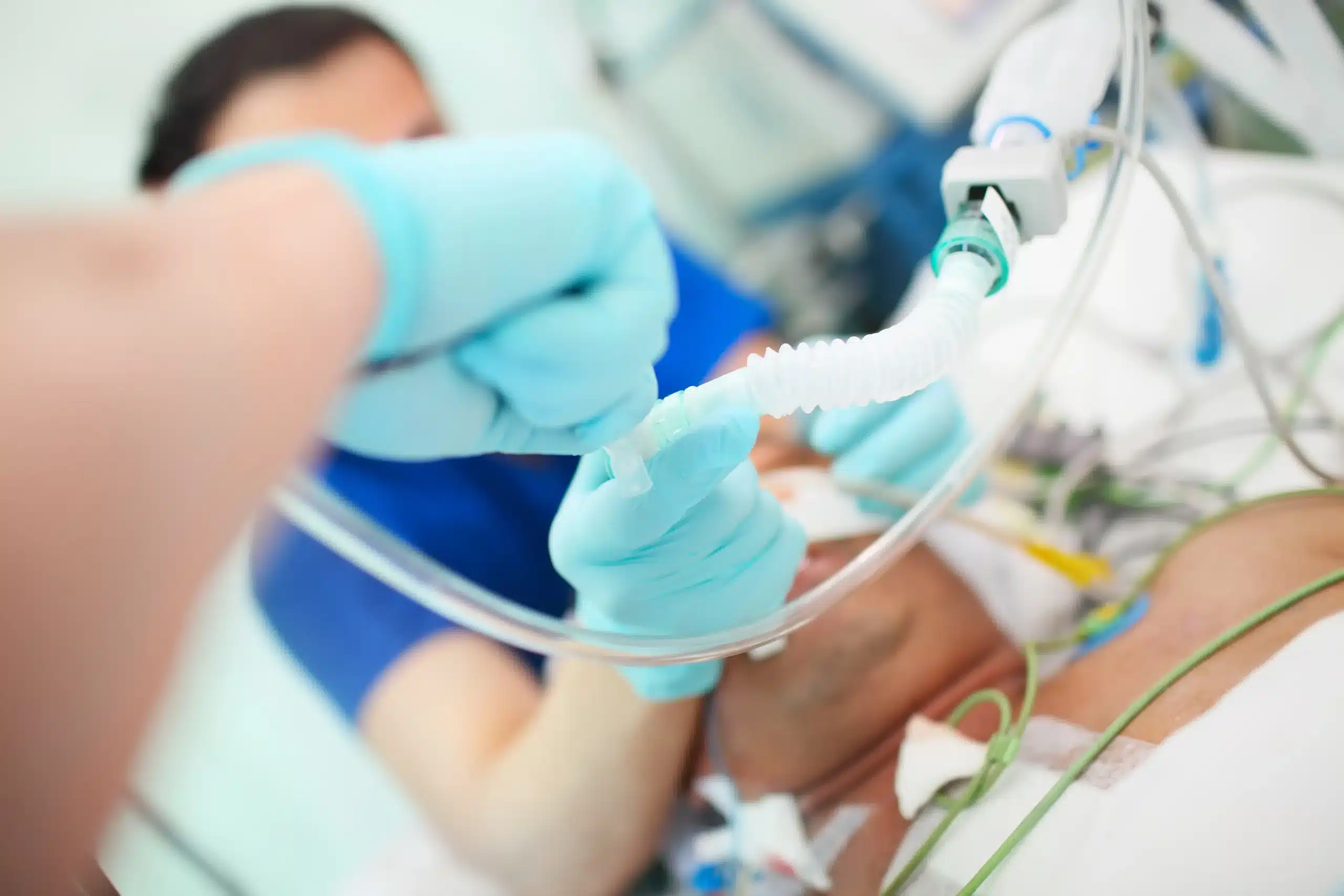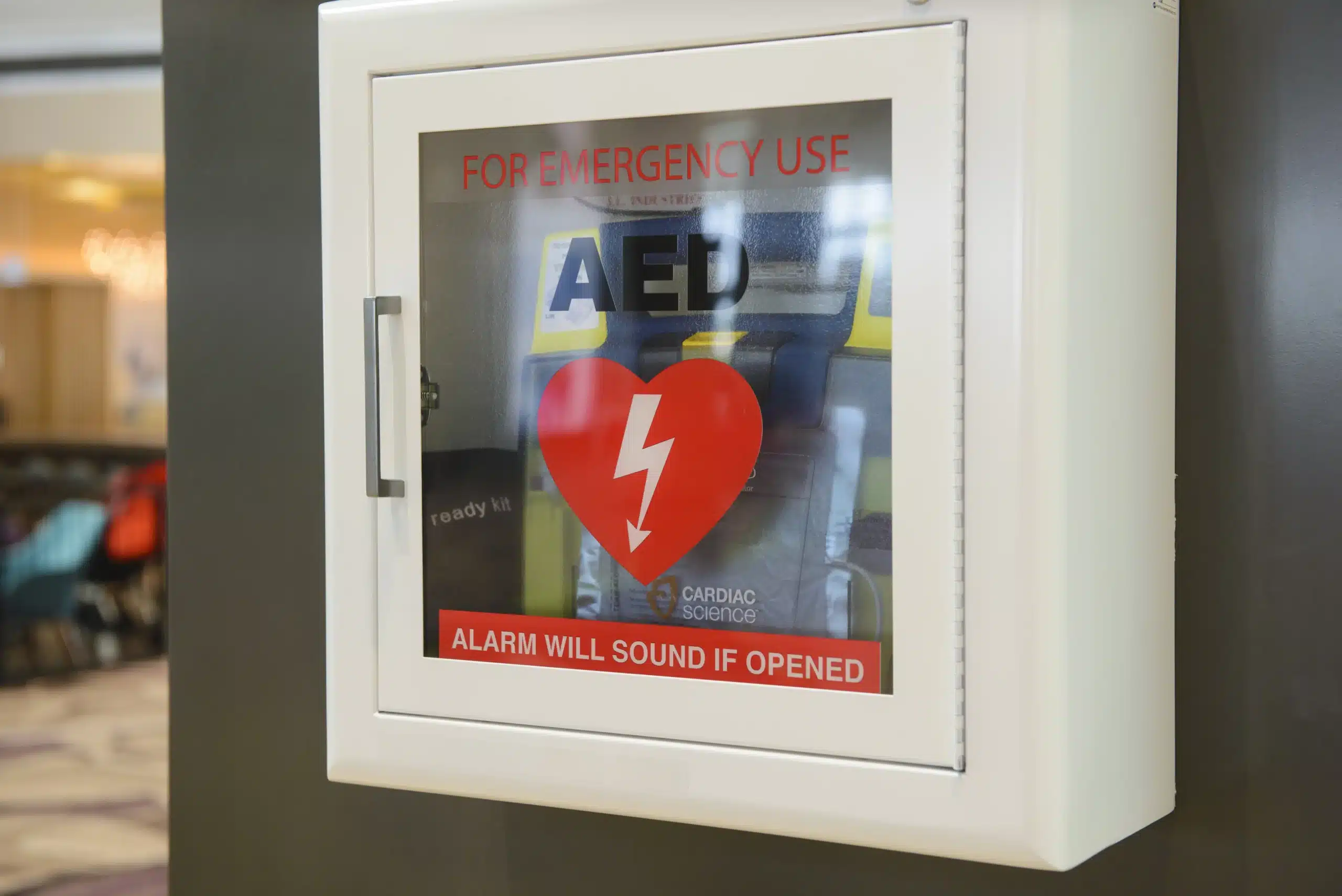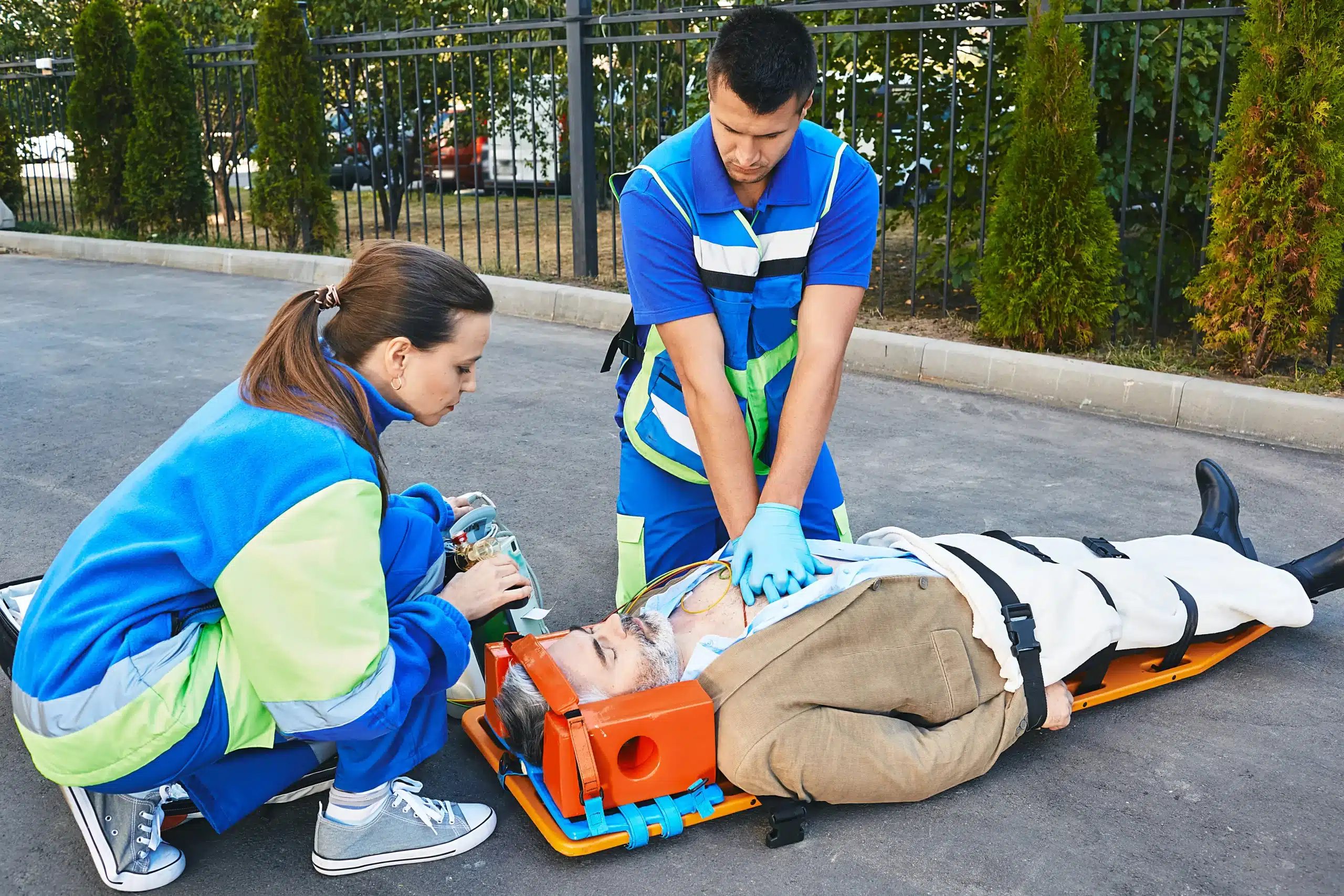Working in healthcare in San Mateo, you know how vital CPR skills are. But let’s face it, traditional CPR training can be a hassle. Finding the time for lengthy classes and refresher courses isn’t always easy. RQI in San Mateo offers a more flexible and effective solution. This program, developed by the American Heart Association, uses a “little and often” approach, incorporating short, frequent practice sessions to help you maintain your skills and confidence. This article will break down the details of RQI, exploring its benefits, costs, and how it compares to traditional CPR training. We’ll also guide you to RQI training resources in San Mateo, so you can easily find the program that fits your needs.
Key Takeaways
- RQI offers a flexible, skills-based approach to CPR training: Short, frequent practice sessions combined with online learning help maintain skills and confidence, fitting easily into busy schedules.
- RQI benefits both providers and patients: Consistent practice and realistic simulations improve CPR quality and boost provider confidence, leading to better patient outcomes.
- RQI training in San Mateo is accessible and affordable: Local providers offer various RQI courses with flexible scheduling and competitive pricing to fit your needs.
What is RQI?
The Resuscitation Quality Improvement (RQI) program, developed by the American Heart Association (AHA), offers a fresh approach to CPR training. It’s a subscription-based program designed specifically for healthcare providers to combat the common problem of CPR skills fading over time. Instead of infrequent, large blocks of training, RQI focuses on short, frequent practice sessions to help you maintain those life-saving skills. You can think of it as a “little and often” method to keep your CPR abilities sharp. Learn more about the program details on the AHA website.
How RQI Works
RQI blends online learning with hands-on practice. You’ll work through online cognitive modules, including educational videos and simulated patient cases. Short quizzes follow these modules to check your understanding. The program then guides you through hands-on skills sessions using a manikin. This combination of online and in-person training allows for flexible learning that adapts to your schedule. IU Health CPE provides further information on the RQI program structure.
Key RQI Components
A core element of RQI is the eCredential. This digital badge verifies your proficiency in high-quality CPR, demonstrating your commitment to maintaining these crucial skills. You earn this credential through consistent participation in the RQI training sessions. The program’s structure delivers manageable chunks of cognitive learning and skills practice, making it easier to fit into your busy routine. RQI Partners offers a helpful FAQ section for more details on RQI completion and credentialing.
RQI Benefits over Traditional CPR
RQI represents a significant shift in how healthcare professionals maintain their CPR skills. It offers several advantages over traditional CPR training, making it a more effective and convenient way to stay current with these life-saving techniques.
Improved CPR Quality & Retention
Traditional CPR training often suffers from what’s known as “skills decay.” People tend to forget crucial steps and techniques over time. RQI combats this with a subscription-based program that provides ongoing training and reinforcement. This approach, backed by the American Heart Association, ensures that healthcare providers retain their CPR skills and deliver higher-quality CPR when it matters most. This consistent practice helps healthcare workers maintain their proficiency, leading to better patient outcomes.
Increased Confidence
Knowing you can perform CPR effectively in a crisis is essential. RQI programs significantly improve learner confidence, which translates to better performance under pressure. This increased confidence is invaluable for healthcare providers facing high-stakes situations. Confident providers are more likely to act decisively and effectively, potentially saving lives.
Flexible Scheduling
One of the biggest hurdles with traditional CPR training is finding the time to attend a class. RQI offers a solution with its flexible scheduling. Healthcare professionals can access training and complete modules at their convenience, fitting training seamlessly into their busy schedules. This flexibility makes it easier for healthcare providers to stay up-to-date with their CPR skills without disrupting their work or personal lives.
Performance Tracking & Feedback
RQI takes a data-driven approach to training. The program tracks performance, providing valuable insights that organizations can use to refine their CPR training programs. This feedback helps identify areas for improvement and ensures that training remains relevant and effective. RQI helps organizations optimize their training programs and ensure their teams are well-prepared.
Realistic Simulations
RQI incorporates realistic simulations based on the latest American Heart Association guidelines. These simulations create lifelike training scenarios, preparing healthcare providers for the complexities of real emergencies. This practical experience is crucial for developing the skills and confidence needed to perform effective CPR under pressure. The realistic nature of these simulations bridges the gap between training and real-world application.
Find RQI Training in San Mateo
Looking for RQI certification in San Mateo? You have several convenient options. Safety Training Seminars, a woman-owned AHA Training Center, offers high-quality courses right here in San Mateo. They provide a range of American Heart Association certifications, including BLS, ACLS, PALS, CPR, and First Aid. Serving San Mateo, Daly City, and Millbrae, their convenient location makes accessing the training you need easy. Explore their RQI course options on their website.
Safety Training Seminars
Safety Training Seminars prioritizes excellent customer service and offers a low price guarantee, ensuring you receive top-tier training at a competitive price. They understand the demands of busy professionals and offer flexible scheduling to accommodate various needs. For those seeking comprehensive training options, they also offer BLS, ACLS, and CPR and First Aid courses.
Bay Area CPR
Another option for RQI training in the San Francisco Bay Area is Bay Area CPR. They offer various RQI programs, including BLS, ACLS, and PALS certifications through the American Heart Association.
Flexible Course Schedules
Many training centers understand the need for flexible scheduling. Safety Training Seminars, for example, offers courses seven days a week, making it easier to fit training into your busy schedule. This flexibility is a major advantage for those juggling work, family, and other commitments.
24/7 Access
One of the key advantages of the RQI program is its 24/7 availability. This accessibility allows for flexible learning and certification, empowering you to complete the training at your own pace and on your own time. Learn more about the program’s 24/7 access through resources like the Guthrie RQI FAQ. This on-demand learning model is a significant benefit for those with demanding schedules.
RQI Costs in San Mateo
RQI training costs vary depending on several factors, including the certification level (BLS, ACLS, or PALS), the training provider, and any available discounts. While it’s difficult to give exact numbers without knowing your specific needs, this section offers a general overview of RQI pricing in San Mateo and tips for finding the best value.
Pricing
The American Heart Association RQI (Resuscitation Quality Improvement) program is a popular, modern way for medical and healthcare professionals in San Mateo to receive their official AHA BLS, ACLS, and PALS certification cards. BLS RQI is generally the most affordable, followed by ACLS and then PALS. You can often find pricing information on training providers’ websites, like Safety Training Seminars. Explore their pages for BLS, ACLS, and PALS for more details.
Discounts & Promotions
Look for discounts and promotions to save on RQI training. Many providers, including Safety Training Seminars, offer a low price guarantee, ensuring a competitive rate. Watch for special offers, early bird discounts, or bundled packages that combine certifications. Professional organizations or employers may also partner with training centers to offer discounted rates for members.
Group Rates
If you’re training with a group, ask about group discounts. Many RQI providers offer reduced rates for larger groups, making it cost-effective for hospitals, clinics, or other organizations training multiple staff members. Contact Safety Training Seminars through their contact page to discuss group rates and customize training for your team.
RQI Certifications & Qualifications
AHA Certification
The American Heart Association RQI (Resuscitation Quality Improvement) program is a popular and efficient way for medical and healthcare professionals in San Mateo to get their official American Heart Association BLS, ACLS, and PALS certification cards. RQI helps healthcare providers maintain their skills and confidence in providing high-quality CPR through frequent, short practice sessions.
eCredential Verification
The RQI eCredential verifies that you’ve met the American Heart Association’s guidelines for high-quality CPR. It confirms your consistent participation in the RQI program’s low-dose, high-frequency training and offers a convenient way to demonstrate your up-to-date CPR qualifications.
Validity & Recognition
After completing the RQI program, students receive an official American Heart Association certification card valid for two years. This widely recognized certification meets national standards and aligns with the recommended renewal cycle for CPR certifications, ensuring ongoing competency in resuscitation techniques.
The RQI Learning Experience
RQI CPR training blends online learning with hands-on skills sessions, offering a flexible and effective approach. This method lets you learn at your own speed and provides the practice necessary to master high-quality CPR.
Online Learning Modules
The RQI program begins with online learning modules. These modules use a variety of engaging tools, including educational videos, simulated patient cases, and multiple-choice questions. This approach allows you to review key concepts, practice decision-making, and test your knowledge. You can work through the material at your own pace, revisiting sections as needed to ensure a thorough understanding of CPR techniques. This online portion of the training provides the foundation you’ll need for the hands-on skills evaluation. For more information about the program components, check out these RQI FAQs for Staff.
Hands-on Skills Testing
After completing the online modules, you’ll participate in a hands-on skills evaluation session. This session allows you to demonstrate your CPR proficiency under the guidance of a certified RQI instructor. The instructor will assess your technique and provide personalized feedback to help you refine your skills. Successful completion of the skills evaluation earns you the RQI eCredential, verifying your competency in high-quality CPR. This eCredential demonstrates that you’ve met the rigorous standards set by the American Heart Association.
Ongoing Training
Unlike traditional CPR courses that require infrequent renewal, RQI utilizes low-dose, high-frequency training. This means you’ll participate in short skills sessions regularly throughout the year. These sessions reinforce your skills and knowledge, helping you maintain peak performance. This ongoing practice ensures your CPR skills remain sharp and that you’re always prepared to respond to a cardiac arrest emergency. You can learn more about how RQI training helps providers maintain high-quality performance through these ongoing sessions.
Who Should Take RQI in San Mateo?
RQI isn’t just another CPR certification; it’s a dynamic system designed to keep your skills sharp and your confidence high. But who benefits most from this innovative approach? Let’s take a look.
Healthcare Professionals
For medical professionals in San Mateo, staying current with the latest resuscitation guidelines is crucial. The American Heart Association RQI program offers a streamlined path to maintaining your BLS, ACLS, and PALS certifications. It’s the preferred method for many healthcare providers because it integrates seamlessly into busy schedules, ensuring you’re always prepared to deliver high-quality CPR. Learn more about these certifications on our BLS, ACLS, and PALS pages.
Emergency Responders
When every second counts, consistent, reliable CPR skills are paramount. RQI provides the flexible training emergency responders need. The blended learning format combines online learning with short, frequent skills sessions, fitting easily into even the most demanding schedules. This approach helps maintain muscle memory and ensures you’re always ready to respond effectively in a crisis. Explore our RQI classes to find the right fit for you.
Hospitals & Clinics
Hospitals and clinics committed to providing the highest standard of care understand the importance of consistent CPR competency. RQI helps healthcare providers maintain their skills and knowledge, essential for effective CPR during cardiac arrests. By implementing RQI, these facilities demonstrate a dedication to patient safety and optimal outcomes. Our low price guarantee makes it easy to bring RQI training to your entire team.
Educators & Childcare Providers
For those entrusted with the well-being of children, knowing CPR and first aid is a must. RQI empowers educators and childcare providers with the skills to respond confidently in emergencies. Learning CPR is a valuable life skill that can make a profound difference, significantly increasing a victim’s chance of survival. Contact us today to discuss CPR and first-aid training options for your organization.
Addressing RQI Concerns
Switching to a new training program always comes with questions. Here are answers to common concerns about RQI training:
Online Training Effectiveness
RQI’s online format delivers the same quality of instruction as traditional in-person CPR classes. The program uses a blend of educational videos, simulated patient cases, and multiple-choice questions covering the same topics as conventional American Heart Association (AHA) programs. This approach ensures you receive comprehensive training and develop a strong understanding of CPR principles and techniques. The RQI program includes the same cognitive and skill modules as a traditional AHA course.
Time Commitment
One of the biggest advantages of RQI is its flexibility. Instead of blocking out hours for a full-day class, you’ll complete short cognitive modules online at your own pace. After completing the modules, you’ll perform short skills drills each quarter. This “low-dose, high-frequency” learning method reinforces your skills and helps you maintain top performance. It’s designed to fit easily into your busy schedule.
Tech Support & Resources
RQI is designed for convenient, 24/7 access. While the system undergoes scheduled monthly maintenance, it’s typically planned for evenings to minimize disruption. Plus, RQI Partners offers dedicated technical and customer support to help troubleshoot any issues and ensure a smooth learning experience. They’re there to assist so you can focus on what matters most—saving lives.
Maintain Your RQI Certification
Keeping your RQI certification current is easier than you might think. Instead of infrequent, high-stress renewal courses, RQI uses a low-dose, high-frequency approach. This means you’ll engage in short, regular practice sessions to maintain your CPR skills. This method helps you stay prepared and confident in your abilities.
Renewal Requirements
RQI certification renewal focuses on demonstrating competency in high-quality CPR skills. You’ll regularly practice your skills through the RQI program to meet these requirements. This ongoing practice ensures you’re always ready to respond effectively in a real-life emergency.
Continuing Education
RQI doesn’t just focus on hands-on skills; it also keeps your knowledge up-to-date. The program includes cognitive learning modules with educational videos, simulated patient cases, and short quizzes. These resources help reinforce your understanding of key concepts and best practices in CPR.
Prevent Skills Decay
Traditional CPR training often leads to skills decay between renewals. RQI combats this by offering more frequent practice opportunities. This consistent reinforcement helps you retain your skills and perform CPR effectively when it matters most. The flexible online platform makes it easy to fit these sessions into your busy schedule.
Related Articles
- RQI Classes in San Mateo, CA – San Mateo CPR Classes
- CPR Training in Daly City: Your Complete Guide – San Mateo CPR Classes
- American Heart Association (AHA) Courses in Daly City – San Mateo CPR Classes
- HeartCode PALS San Mateo: Your Guide to Certification – San Mateo CPR Classes
- CPR Certification in San Mateo: Your Guide – San Mateo CPR Classes
Frequently Asked Questions
How does RQI differ from traditional CPR training?
RQI uses a “little and often” approach, focusing on short, frequent practice sessions and online learning modules rather than one-time classroom training. This helps healthcare professionals maintain their skills and confidence over time, preventing “skills decay.” It’s a more flexible and convenient way to stay current with the latest CPR guidelines.
What is an RQI eCredential?
It’s a digital badge you earn through consistent participation in RQI training sessions. It verifies your proficiency in high-quality CPR according to the American Heart Association’s standards, demonstrating your commitment to maintaining these essential skills. Think of it as a digital representation of your up-to-date CPR qualifications.
How much does RQI training cost?
The cost varies depending on the certification level (BLS, ACLS, or PALS) and the training provider. Look for providers offering a low price guarantee or discounts for groups. Contacting training centers directly is the best way to get a precise quote based on your specific needs.
Where can I find RQI training in San Mateo?
Several options are available in San Mateo, including Safety Training Seminars, a woman-owned AHA Training Center. They offer various AHA certifications, including BLS, ACLS, PALS, CPR, and First Aid. You can also explore other providers like Bay Area CPR for additional options in the San Francisco Bay Area. Check their websites or contact them directly to find a course that fits your schedule.
What if I have trouble accessing the online RQI modules?
RQI offers 24/7 access to its online platform, though occasional scheduled maintenance may occur. RQI Partners provides technical and customer support to help resolve any technical issues you might encounter. Don’t hesitate to reach out to them for assistance.
